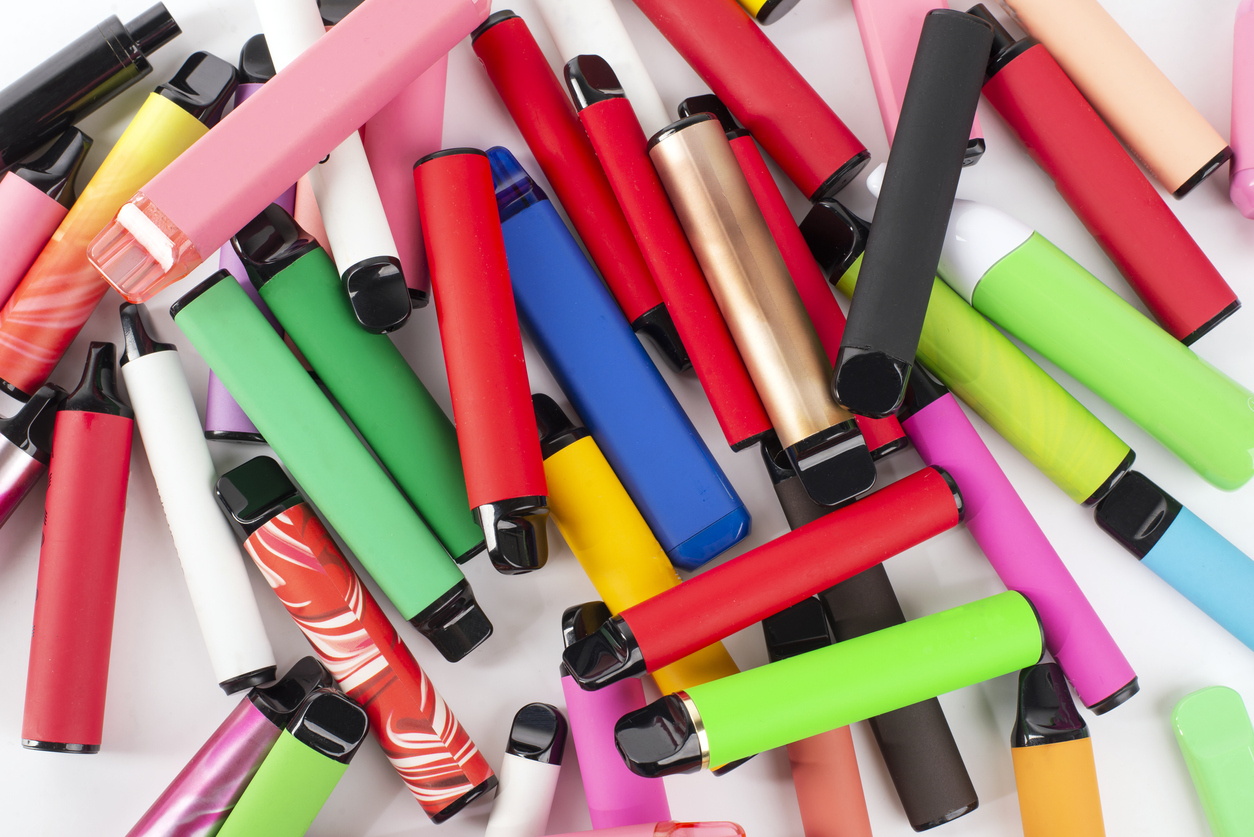Disposable vapes ban could cost lives, think tank warns
September 29, 2023

As the government considers a ban on disposable vapes to tackle youth vaping, a new briefing paper from the free-market think-tank the Institute of Economic Affairs (IEA) has found that a ban could deter adult smokers from quitting while doing little to stop underage vaping.
Critics claim disposable vapes – often sold in colourful packaging and with fruity flavours – are targeted at under-18s. Prime ninister Rishi Sunak said in May 2023, “I have two young girls. I’m also worried about [underage vaping]. It looks like they are targeted at kids, which is ridiculous.”
But according to “A Vapid Solution: Why banning disposable e-cigarettes would be a failure of law-enforcement”, the government should instead enforce existing laws against underage vaping.
“Banning a product because it is sometimes consumed by people who are already banned from buying it is a poor basis for legislation,” write report authors Christopher Snowdon, IEA head of lifestyle economics, and Reem Ibrahim, communications officer. “We do not ban cider just because some teenagers drink it. We do not ban 18 certificate films because some teenagers watch them. We do not even ban cigarettes because some teenagers smoke them.”
E-cigarettes are a highly effective, safe and popular tool for smokers seeking to quit. Snowdon and Ibrahim warn that without their favoured products, a ban could risk some returning to cigarettes and the associated health risks.
The IEA paper also highlights how a ban could result in the proliferation of unregulated and unsafe vaping products on the black market. A recent analysis of vapes confiscated from a school in Kidderminster found that most were already illegal products, with many containing high levels of lead, nickel and chromium.
E-cigarette critics also raise environmental concerns about single-use vaping, including the use of plastic and lithium and litter. The lithium discarded in disposable vapes every year is, according to the paper, relatively small — it would only be enough to build 1,200 car batteries, a tiny fraction of the 16.5 million electric cars on the road in the UK. A reduction in littering could be achieved through encouraging responsible recycling and consideration of a deposit return scheme.
“Good laws are seldom made in a climate of hysteria,” said Snowdon. “There are understandable concerns about youth vaping, but the problem would be better addressed by enforcing the laws that already exist than by prohibiting an entire category of e-cigarettes.
“It is too easy for teenagers to buy vapes illegally – and the vapes themselves are often illegal and unregulated. The government should take a calm and rational look at the unintended consequences that could arise from a ban on disposable vapes before banning an effective alternative to cigarettes.”
Reem Ibrahim added: “Concerns about youth vaping are not unfounded, but banning disposable e-cigarettes would be entirely counterproductive. The Government has largely acknowledged the benefits of tobacco harm reduction. Banning one of the safest, cheapest and most convenient methods of nicotine consumption would make it significantly harder for adults to quit smoking.
“We need to strictly enforce existing laws against under-18s purchasing these products, rather than taking away the freedom to choose from millions of adults.”
